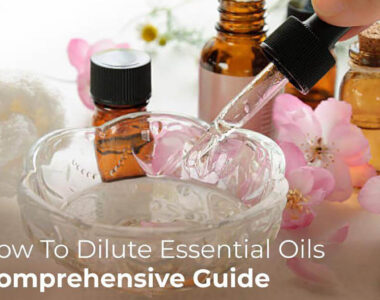Carrier oils are essential in the world of aromatherapy, skincare, and massage therapy. They are oils derived from the fatty parts of plants—such as seeds, nuts, or kernels—and are primarily used to dilute essential oils before topical application. They are also used to moisturize, nourish, and soothe the skin. This comprehensive guide will cover the different types of carrier oils, their individual benefits, common uses, and how to choose the right one for your needs.
What Are Carrier Oils?
Carrier oils, sometimes referred to as base oils, are vegetable oils that help “carry” the essential oils onto the skin. Essential oils are highly concentrated and potent, so they must be diluted with a carrier oil to avoid irritation or adverse reactions. Carrier oils have their own benefits, including moisturizing, anti-inflammatory, and antioxidant properties, which can enhance the overall effectiveness of your skincare routine.
Carrier oils differ from essential oils in that they are not volatile and are typically much less fragrant. They also have a more viscous texture and contain essential fatty acids, vitamins, and other nutrients that nourish the skin.
Common Types of Carrier Oils and Their Benefits
- Sweet Almond Oil
- Origin: Extracted from the kernels of the almond tree.
- Benefits: Rich in vitamins A, E, and D, sweet almond oil is great for softening the skin and reducing signs of aging. It’s especially useful for dry, sensitive, or irritated skin and can help reduce inflammation.
- Uses: It is commonly used in skincare to hydrate and soothe the skin. It can also be used in massage oils for its smooth, lightweight texture.
- Coconut Oil
- Origin: Derived from the meat of mature coconuts.
- Benefits: Coconut oil is packed with medium-chain triglycerides (MCTs), which make it an excellent moisturizer. It has antibacterial and antifungal properties, making it great for skin prone to acne or other infections.
- Uses: Commonly used as a moisturizer and for its ability to heal wounds, coconut oil is also used in hair care to treat dry or damaged hair.
- Jojoba Oil
- Origin: Extracted from the seeds of the jojoba plant.
- Benefits: Jojoba oil is technically a wax ester, not a true oil. It closely resembles the natural sebum produced by human skin, making it a fantastic moisturizer for all skin types. It’s non-comedogenic, meaning it won’t clog pores, and it is rich in vitamin E and B-complex vitamins.
- Uses: Ideal for sensitive skin, jojoba oil can be used to balance oil production, hydrate, and soothe irritated skin. It’s also great for hair and scalp health.
- Argan Oil
- Origin: Extracted from the nuts of the argan tree in Morocco.
- Benefits: Rich in essential fatty acids, vitamin E, and antioxidants, argan oil is an excellent oil for hydrating the skin and reducing signs of aging. It’s often used to improve skin elasticity, reduce wrinkles, and promote a healthy glow.
- Uses: Often found in skincare and haircare products, argan oil can be used for dry skin, acne, and to treat frizzy or damaged hair.
- Rosehip Seed Oil
- Origin: Cold-pressed from the seeds of wild roses, typically Rosa moschata or Rosa canina.
- Benefits: Rosehip oil is known for its high content of essential fatty acids and antioxidants, which help regenerate skin cells, reduce scars, and promote skin healing. It’s a popular choice for anti-aging treatments and for treating hyperpigmentation.
- Uses: It’s commonly used in facial serums, creams, and oils to target fine lines, scars, and uneven skin tone.
- Grapeseed Oil
- Origin: Extracted from the seeds of grapes, usually those used in wine production.
- Benefits: A light and fast-absorbing oil, grapeseed oil is high in linoleic acid, which can help balance oil production in the skin. It also has antioxidant properties and is great for acne-prone skin.
- Uses: Grapeseed oil can be used in facial care products, as it helps to tighten the skin and prevent clogged pores. It’s also used in massage therapy due to its light texture.
- Olive Oil
- Origin: Extracted from the fruit of the olive tree.
- Benefits: Olive oil is rich in oleic acid, vitamin E, and polyphenols, which make it a great choice for dry skin and anti-aging treatments. It is deeply hydrating and has anti-inflammatory properties.
- Uses: While olive oil can be a bit heavier than other oils, it’s great for mature or dry skin. It’s often used in DIY skincare recipes or as a natural makeup remover.
- Hemp Seed Oil
- Origin: Cold-pressed from the seeds of the hemp plant (Cannabis sativa).
- Benefits: Hemp seed oil is high in omega-3 and omega-6 fatty acids, which promote skin hydration and repair. It’s known for its ability to soothe inflammation and help with conditions like eczema or psoriasis.
- Uses: Hemp oil is often used in skincare products aimed at sensitive or acne-prone skin. It can also be used to promote scalp health.
- Avocado Oil
- Origin: Extracted from the pulp of the avocado fruit.
- Benefits: Avocado oil is rich in monounsaturated fats, vitamin E, and antioxidants, making it a powerful moisturizing oil. It helps improve skin elasticity and can reduce the appearance of dark spots and wrinkles.
- Uses: Commonly used in dry or mature skin treatments, avocado oil is also beneficial for soothing sunburns and minor burns.
- Sunflower Seed Oil
- Origin: Cold-pressed from the seeds of the sunflower plant.
- Benefits: Sunflower seed oil is high in vitamin E, an antioxidant that helps protect the skin from free radical damage. It’s also anti-inflammatory and can improve skin hydration.
- Uses: It’s often used as a gentle moisturizer for sensitive skin and is suitable for all skin types.
How to Choose the Right Carrier Oil
Choosing the right carrier oil depends on your skin type, the condition you want to treat, and the essential oils you plan to mix with it. Here are some general guidelines:
- For Dry Skin: Oils like argan oil, avocado oil, and coconut oil provide deep hydration and nourishment.
- For Oily or Acne-Prone Skin: Jojoba oil, grapeseed oil, and hemp seed oil are non-comedogenic and help balance oil production without clogging pores.
- For Sensitive Skin: Sweet almond oil, sunflower seed oil, and rosehip seed oil are gentle and less likely to cause irritation.
- For Anti-Aging: Rosehip seed oil, argan oil, and avocado oil are rich in antioxidants and essential fatty acids that help regenerate skin cells and improve elasticity.
- For Inflammation or Skin Conditions: Hemp seed oil, coconut oil, and jojoba oil are known for their soothing and anti-inflammatory properties.
Tips for Using Carrier Oils
- Dilution: When using essential oils with carrier oils, a general dilution ratio is about 1–2% essential oil to carrier oil (e.g., 1–2 drops of essential oil per teaspoon of carrier oil). This varies depending on the intended use and the specific essential oil.
- Patch Testing: Always perform a patch test before using a new carrier oil or essential oil to ensure you do not have an allergic reaction.
- Storage: Store carrier oils in a cool, dark place to prevent oxidation. Some oils, like coconut oil, can solidify in cooler temperatures but can be liquefied by gently warming them.
Conclusion
Carrier oils are an integral part of both skincare and aromatherapy. They not only serve as a safe way to dilute essential oils but also offer numerous benefits for the skin and hair. With so many options available, it’s important to choose the right carrier oil based on your specific needs, whether that’s for moisturizing, anti-aging, soothing inflammation, or improving hair health. By understanding the properties and uses of each oil, you can incorporate them effectively into your daily routine.
Sources:
- “Carrier Oils for Aromatherapy: Therapeutic Effects and Benefits” by Valerie Ann Worwood (The Complete Book of Essential Oils and Aromatherapy).
- “The Encyclopedia of Essential Oils” by Julia Lawless.
- “Essential Oils: A Handbook for Aromatherapy Practice” by Jennie Harding.
- “The Healing Power of Essential Oils” by Eric Zielinski, D.C.



